Welcome to Wildmore Compost. We’re here to help you grow a garden that’s as good for the planet as it is beautiful. As a proud family-owned business rooted in the English countryside, we’re passionate about making sustainable gardening second nature. Whether you’re a seasoned grower or just planting your first seed, this guide will help you make more conscious choices. Starting with your compost.
In this comprehensive blog, we’ll explore why peat-free compost is the future of gardening, how it supports healthier soil and a thriving ecosystem, and how you can get started with eco-conscious growing practices. Think of this as your go-to resource for all things peat-free, with links to deeper dives along the way.
What Is Peat-Free Compost?
Peat-free compost is a growing medium made entirely without peat moss, which has traditionally been harvested from ancient peat bogs. These bogs are some of the most powerful carbon sinks on Earth. Once disturbed, they release vast amounts of CO₂.
Instead of using peat, Wildmore Compost's Peat-Free Compost is thoughtfully crafted using a blend of AD Fibre, Coir, Wood Fibre, Conifer Bark, and trace elements that plants love. It’s rich in nutrients, great for structure, and kinder to the Earth.
Why does this matter?
Because using peat-free compost reduces carbon emissions, supports biodiversity, and protects endangered ecosystems. Every bag makes a difference.
The Rise of Peat-Free Compost in the UK 2025
In 2025, peat-free compost use in the UK is growing faster than ever. With increasing regulations and strong support for environmental initiatives, more gardeners and landscapers are switching to sustainable compost UK options. This trend reflects a shift in how we think about gardening. Moving toward greener, more sustainable practices.
👉 What’s actually inside our compost blend?
👉 How is Peat Free Compost Made?
Why Go Peat-Free?
Peat extraction is one of the most ecologically damaging practices in horticulture. As awareness grows, gardeners across the UK are making the switch.
Here’s Some Benefits Of Going Peat Free:
- Environmental Impact: Peatlands store twice as much carbon as all the world's forests combined, despite only covering 3% of land surface globally. (1) Damaging them releases that stored carbon.
- Healthy Plants: Plants grown with peat-free compost tend to be more vigorous and resilient. The natural ingredients provide essential nutrients without the risk of over-acidifying the soil, which sometimes happens with peat-based products. Gardeners who want healthier plants and richer soil find peat-free compost a great choice.
- Wildlife Protection: Peatlands are home to unique plants, insects, and birds that can’t live anywhere else.
- Regulations Are Changing: The UK government has already banned peat compost sales to amateur gardeners by 2026. The future is peat-free and Wildmore Compost is already there.
👉 The environmental cost of peat
How to Use Peat-Free Compost in Your Garden
Peat free compost is a completely different product to peat compost. Those of us who have become accustomed to using peat may have a hard time when they make the switch to peat free. It is no surprise that so many people have lost trust in peat free composts when we do not consider that these composts have completely different properties! At Wildmore Compost, we are committed to educating people on how to make the switch to peat free easy. (As well as curating a peat free compost that you will actually love.) In this section, we will outline best practices and give top tips for peat free growing, but we have a comprehensive article where we will dive into more detail coming very soon!
Before you purchase your compost, it is important to ensure that you bring home a bag that has been freshly made. Compost that has been sitting around for a while can degrade. This means that you are not getting the quality that you have paid for! You can ensure that you always have fresh compost either by purchasing direct from our website, where all of our bags are small-batch and always fresh. Or you can go to your local garden centre and ask how long the bags you want have been there. Make sure that you only buy compost that you know you will need within the next few weeks. Although compost can maintain its quality for around a year, you can get the most from your compost by using it while it is in its best condition.
Once you have your compost, keep it in a cool, dry place, out of direct sunlight. It is also best to keep it in its original packaging. If you look closely at any bag of compost, you will notice that it has tiny holes that are designed for ventilation.
Watering peat-free compost is different to peat and can be confusing if you are not used to it. We typically recommend that you water peat free compost little and often. You can check if your plant needs to be watered by putting your finger two knuckles deep into the compost. Peat free compost is susceptible to misleading you by looking dry on top but being wet underneath! It is also recommended to water either in the morning or evening so that the water does not evaporate or scorch the plant.
Nutrients in the compost can be washed out by watering, so it is important to keep a close eye on your plants to search for any signs of nutrient deficiency. This can be identified through stunted growth, yellowing of leaves, spindly, and pink-tinted plants. If any of your plants show these symptoms, you know it is time to feed!
Wildmore Compost All-Purpose Compost is designed to make gardening easy and effective. Here’s how to use it in various areas:
How to Use Peat Free Wildmore Compost
Pots & Containers
Fill a pot of your choice with peat free compost, just below the rim of the pot. Next, dig a hole just larger than the root ball of your selected plant. Insert the plant so that the top of the roots are level with the top of the compost. Add compost around the root ball and gently firm into place. Water thoroughly and enjoy!
Beds & Borders
Fill your bed/border with compost, leaving space for your plants. Dig Holes relative to your plants and insert them into the compost. Just like the pots and containers, fill the gaps with more compost and firm. Water generously.
Hanging Baskets
Layer the compost in your basket, arrange your blooms, and fill in compost around them. Water gently and often, especially in dry spells. Expect a cascade of beautiful blooms!
Houseplants & Herbs
Add a layer of compost to your pot, and gently place your plant inside. Fill the remaining spaces with more compost and gently firm around the plant. Water and watch them thrive!
👉 How to repot houseplants using peat-free compost
👉 A beginner’s guide to raised bed gardening
Who Is Peat-Free Compost Best For?
Everyone! But especially:
- Eco-conscious gardeners
- Beginners looking for an all-purpose solution
- Families teaching kids about sustainability
- Urban gardeners needing a clean, low-odour option
- Homesteaders and growers transitioning from synthetic solutions
👉 Gardening with kids: teaching sustainability through soil
Choosing the Best Peat-Free Compost in the UK
Not all peat-free composts are the same. Look for products made from natural, high-quality ingredients with proven nutrient value. The compost should be free of harmful chemicals and have a good texture.
Wildmore Compost stands out in 2025 as a leading product. Our premium compost is made with care in Lincolnshire and tested over almost a decade for the highest quality and effectiveness. As a family-owned business, we prioritise sustainability and customer satisfaction.
When buying peat-free compost, check for clear labelling, local production, and a strong commitment to peatland protection.
Compost FAQs
Is peat-free compost as effective as peat-based? Yes, when well-formulated (like Wildmore Compost's!) and used correctly, peat-free compost provides excellent water retention, drainage, and nutrient availability to help your plants thrive.
Can I grow everything in it? Wildmore Compost’s All-Purpose Compost is suitable for almost every garden use. For specialist plants (like ericaceous species), you may need specific nutrients added.
What does Wildmore Compost smell like? It smells earthy and fresh. A sign of its natural, living ingredients. No synthetic scents or harsh odours.
👉 More FAQs about Wildmore compost
What Makes Wildmore Compost Different?
We’re not just another compost company. Wildmore Compost is family-owned, UK-based, and run by people who’ve worked the land for generations. Our compost is hand-crafted in small batches and carefully mixed to support plant health and strong root systems.
We value:
- Sustainability – Our compost is formulated from natural, renewable materials, never peat. Each bag of compost produced contains by-product of an Anaerobic Digestion Plant, which produces 100% clean energy to homes. Each of our bags are created from 30% recycled plastic and are 100% recyclable.
- Quality-first approach - We want to give people a reason to switch to peat free. We know that peat free will never be the same as peat, but with our carefully blended mix of special ingredients, you won’t want to go back!
- Transparency – no fillers, no mystery ingredients, no greenwashing. Just honest compost made with care.
👉 Meet the Wildmore family and how we make our compost
Final Thoughts: Growing Greener, Together
Choosing peat-free compost isn’t just a gardening choice, it’s a climate decision. It’s about giving back to the soil, protecting nature, and rethinking the way we grow.
At Wildmore Compost, we’re proud to be part of this movement, and we’re here to help you grow with us.
Explore our compost Join our newsletter for growing tips Follow us on Instagram
📌 Coming Soon on the Wildmore Compost Blog:
- Wildmore Compost’s Story: From Farm to Bag
- How is Peat Free Compost Made?
- Seasonal Gardening Tips for Beginners
- How to Make Your Own Fertiliser Tea
- How We Source Our Materials Sustainably
- Compost vs Topsoil: What’s the Difference?
- Troubleshooting Your Garden: What’s Missing From Your Soil?
Let’s Grow a Wilder World
Thanks for reading. We believe that gardening should nourish both your plants and the planet, and that the best change starts with a bag of compost.
Welcome to Wildmore Compost . Let’s grow greener, together.
(1) https://www.rspb.org.uk/helping-nature/work-with-us/invest-in-peatland-carbon



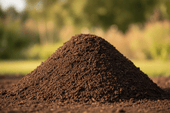


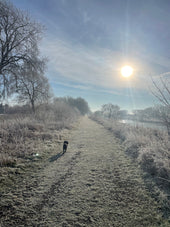
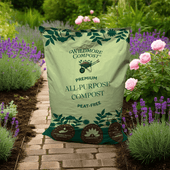
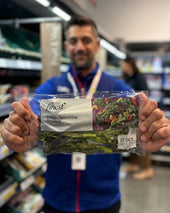
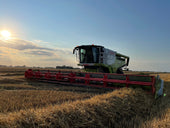








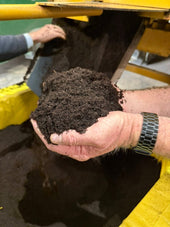


0 comments